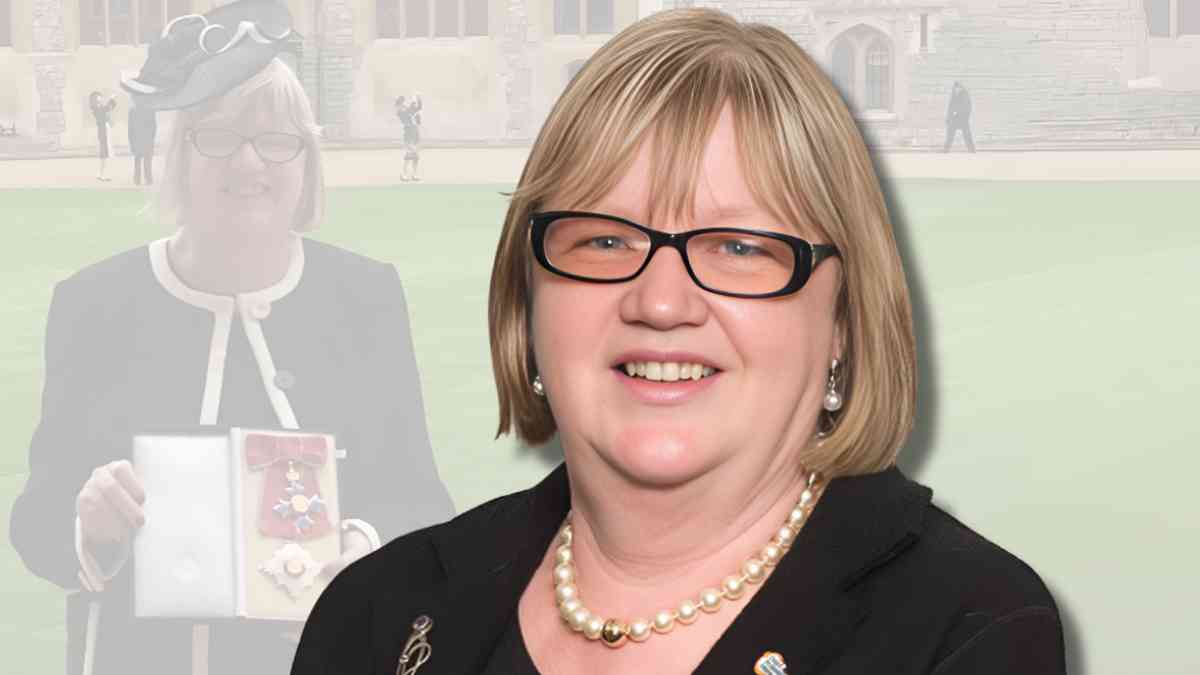Dame Christine Lenehan: Championing Change in SEND Policy and Practice

When one hears the name dame christine lenehan, one immediately conjures up the image of a resolute advocate who has spent decades improving services for disabled children in the UK. Her unwavering dedication, spanning frontline social work to high-level policy advisory roles, marks her as a transformative force in the SEND (Special Educational Needs and Disabilities) arena. For over 40 years, Dame Christine’s efforts have been driven by a fierce sense of justice, empathy, and a commitment to building systems that serve all families equally. This comprehensive article explores her life’s work, major achievements, and ongoing contributions—as a servant of both children and families.
Early Inspirations: From Volunteer to Social Worker
Christine Lenehan’s commitment to children with disabilities germinated early in her life. At just 16, she volunteered in a long‑stay mental health hospital, bearing witness to distressing stories of misunderstanding and neglect. This profound exposure instilled a sense of injustice in her, propelling her towards social work.
In 1980, she qualified as a social worker, taking roles both in residential institutions and community settings. These early roles immersed her in multi‑agency work—collaborating with health professionals, educators, and families—laying the groundwork for her future systemic influence.
Barnardo’s London: Embedding Community-Centred Approaches
After gaining foundational experience, Christine joined Barnardo’s in Tower Hamlets, east London, where she worked for 15 years. Here, she became adept at embedding services within culturally and economically diverse communities. She emphasised tailoring support to community needs rather than imposing top‑down, cookie‑cutter models—a principle that would underpin much of her later work.
National Leadership at CDC and NCB
In 2000, Christine joined the Council for Disabled Children (CDC), part of the National Children’s Bureau (NCB), rising to Director by 2003. Under her leadership, the CDC became the UK’s authoritative voice on policy, practice, and rights for disabled children.
Christine played central roles in designing and launching key campaigns and initiatives:
-
Every Disabled Child Matters: A long‑running national advocacy movement.
-
Introduction of the Children Act 1989 amendments, which formally included disabled children under its protections .
-
Co‑chairing the Children and Young People’s Health Outcomes Forum (since 2012), which pushed forward practical health‑care improvements.
-
Spearheading the Department for Education strategy to deploy 1,300 Independent Support staff, assisting over 22,500 families with Education, Health and Care Plans (EHCPs) since 2011.
National Recognition: OBE and Damehood
In 2009, Christine was awarded an OBE in recognition of her services to disabled children and young people. Seven years later, in June 2016, she was made a Dame Commander of the Order of the British Empire (DBE) in the Queen’s Birthday Honours .
Her acceptance speech reflected her humility: “I am extremely proud to accept this honour on behalf of all the children, young people and families whose lives are affected by disability or special educational needs.”
Safeguarding Leadership and Reviews
Beyond advocacy, Dame Christine conducted critical reviews into safeguarding provision:
-
In partnership with the Child Safeguarding Practice Review Panel, she led a 2022‑23 review into care homes, revealing serious failings in safeguarding disabled children with complex needs.
-
Completed other high‑profile reviews commissioned by both the Department for Education and the Department of Health and Social Care .
Her recommendations consistently called for systemic reform. The most recent one urged cross‑departmental collaboration to transform education, health, and care services to create environments where disabled children “thrive and are supported to achieve”.
Retirement & Valedictory Lecture
In 2023, after nearly four decades of service, Dame Christine announced her retirement from roles at CDC and NCB. On 25 September 2023, she delivered a deeply personal valedictory lecture at Westminster to an audience of over 200, including civil servants, parliamentarians, and young people.
Highlights included:
-
Her personal story: “I grew up determined and strong in an environment that didn’t reward poor children… with a sense of injustice and anger”.
-
Reflections on being “straight talking” and always focussing on “what can be done… in the child and family’s best interests”.
-
A call for emotional intelligence and “shuttle diplomacy” across multi‑agency systems.
-
A tribute to grassroots voices: “young people… are not a tick box”.
The lecture ended with standing ovations from attendees, including tributes from the Minister for Children and the Director of SEND at the Department for Education.
Strategic Advisor on SEND: Shaping Reform
In late 2024, the Department for Education appointed Dame Christine as Strategic Advisor on SEND, initiating a new chapter in her career.
Across spring and summer 2025, she engaged in wide stakeholder consultation:
-
Delivered keynote addresses at the Schools & Academies Show and other events, advocating urgent reform to a SEND system described as a “bureaucratic nightmare”.
-
Opened dialogues with Parent Carer Forums via organisations like NNPCF, emphasising the need for transparent communication to address parental anxiety.
-
Published opinion pieces in The Independent, warning that children with SEND are currently “being failed by the system”, and advocating reforms focusing on early, high‑quality, accessible support.
-
Contributed to policy discussions on the fit-for-purpose nature of EHCPs, questioning whether they remain the right vehicle to deliver SEND support.
Redefining EHCPs: Moving Beyond Bureaucracy
Since May 2025, Dame Christine has been vocal about evolving the EHCP framework:
-
EHCPs, introduced in 2014, were intended for a select group needing coordinated health, care, and education support. But the system now struggles to manage over 480,000 EHCPs—nearly one in twenty pupils.
-
She warns that many plans are unnecessarily complex or unrealistic. “Local authorities… are spending huge amounts of money to develop plans that schools then can’t implement and that make no sense to anyone”.
-
Dame Christine urges policymakers to decide whether EHCPs remain fit for purpose, and to redesign the system to reduce bureaucracy and deliver better outcomes .
The Urgency of Reform: Reports & Advocacy
Recent developments illustrate the scale of the challenge:
-
A Schools Week report (July 2025) noted that Dame Christine serves on the Government’s new Inclusion Advisory Panel, extended to April 2026. The panel is preparing recommendations ahead of a SEND white paper this autumn.
-
A new IPSEA blog (June 2025) warned that speculation over reform—fueled by Dame Christine’s comments—was unsettling already anxious families, emphasising how vital it is not to weaken legal rights.
-
In The Independent (May 2025), Dame Christine placed parental confidence at the heart of reform: “How can we create a system that gives every parent confidence that their child will receive the support they need… without a fight?”.
Key Principles at the Heart of Her Work
From Christine’s fifty-year career, several core themes emerge:
1. Systemic Equity
She has persistently argued that systems must be designed to serve all families—across race, income, and location—not just selective groups.
2. Multi‑Agency Collaboration
Her early frontline work and policy reviews repeatedly advocate cross-sector collaboration between education, health, care, and families.
3. Family and Child Centredness
Christine champions amplifying lived experiences—especially through Parent Carer Forums and youth voices—ensuring reforms are grounded in reality.
4. Reducing Bureaucracy
Labelled a “bureaucratic nightmare”, she calls for streamlined, pragmatic systems that prioritise outcomes over paperwork.
5. Legal Safeguards
She defends existing statutory protections, particularly the Children and Families Act 2014, while promoting smarter implementation.
What Lies Ahead
SEND White Paper (Autumn 2025)
The government aims to publish a SEND White Paper in autumn 2025. Dame Christine’s input is expected to shape key reforms—especially targeted improvements to EHCPs and inclusion strategies.
Inclusion Advisory Panel
Extended to April 2026, this panel—including Dame Christine—is compiling evidence and practical examples of effective inclusive practice.
Enhanced Consultation
Christine has called for genuine dialogue with families, local authorities, schools and charities to ensure reforms build trust and clarity .
Agile Implementation
She emphasises quick action to reduce delays in EHCP issuance, improve participation of educational psychologists in classrooms, and relieve SEN coordinators from bureaucratic overload.
Conclusion: A Legacy Rooted in Justice
dame christine lenehan has devoted her life to a single aim: justice and dignity for every child with SEND. Whether as a frontline social worker, Barnardo’s community leader, national policy shaper, or strategic advisor, her voice has remained clear and consistent: build inclusive systems that work for all.
Her track record is tangible—systemic reforms, statutory protections, improved safeguarding, and a culture shift in priority towards multi‑agency, lived‑experience‑guided practice. Her critiques of EHCP over‑bureaucracy and insistence on listening to families mark her current phase.



